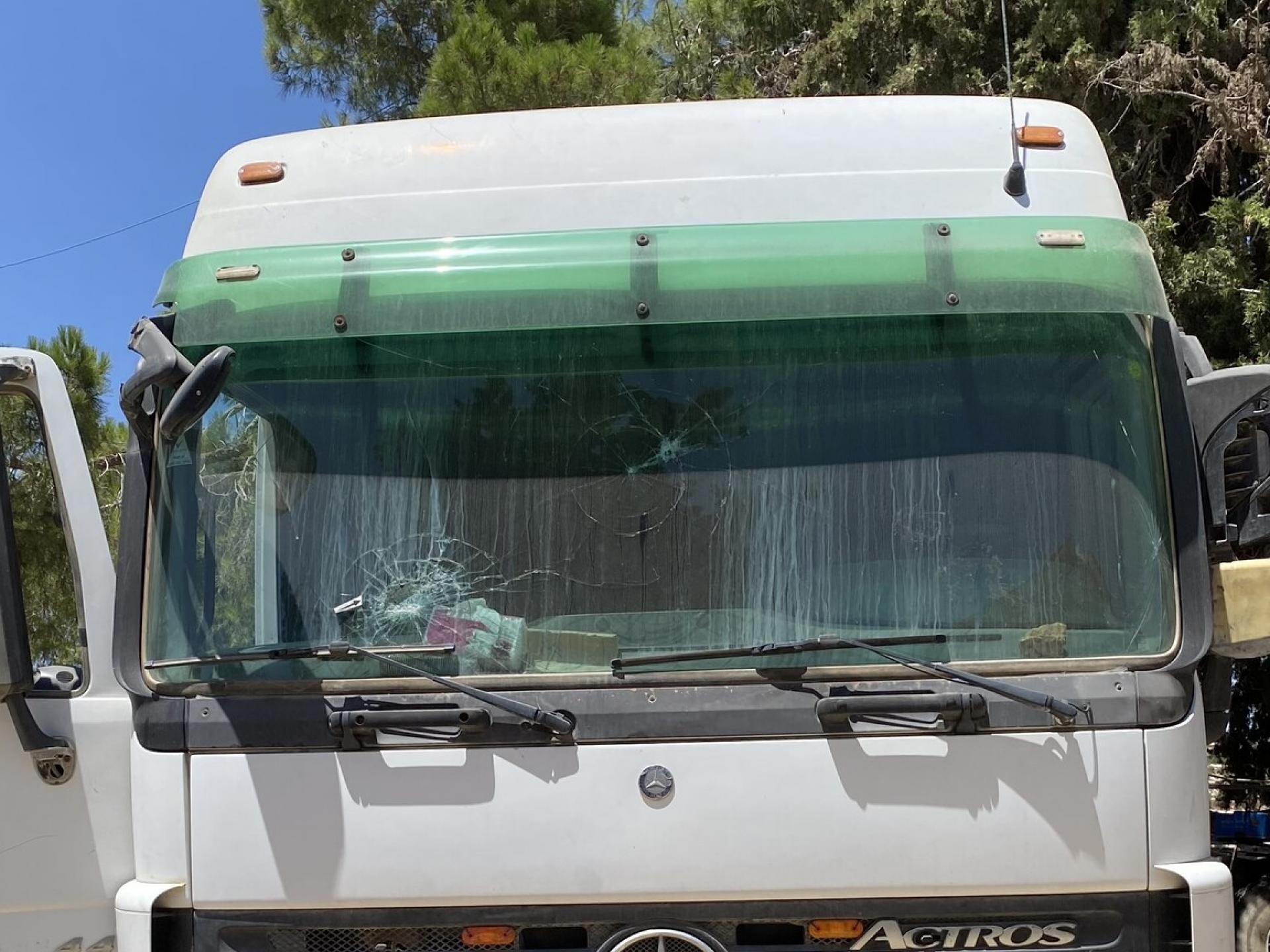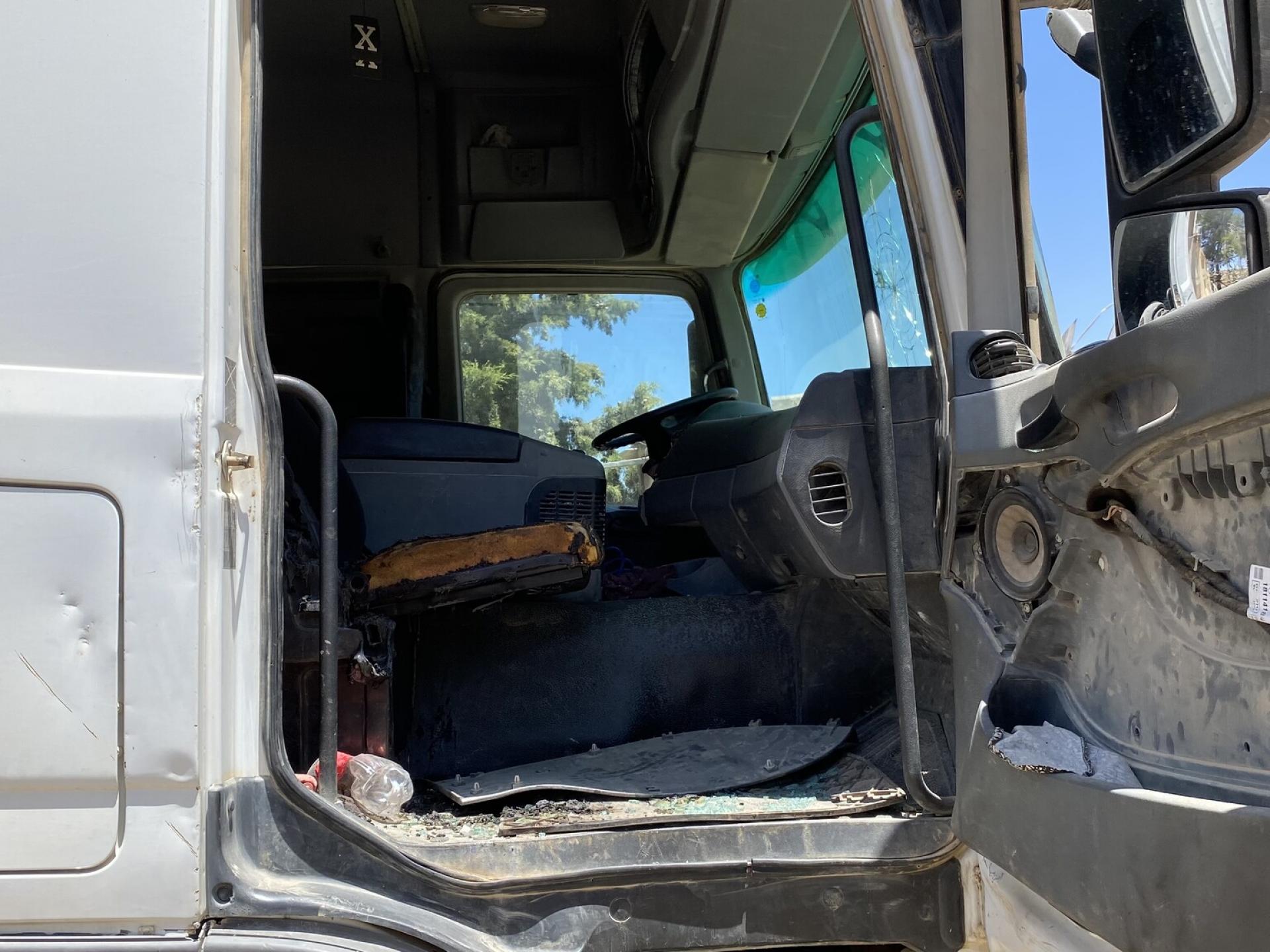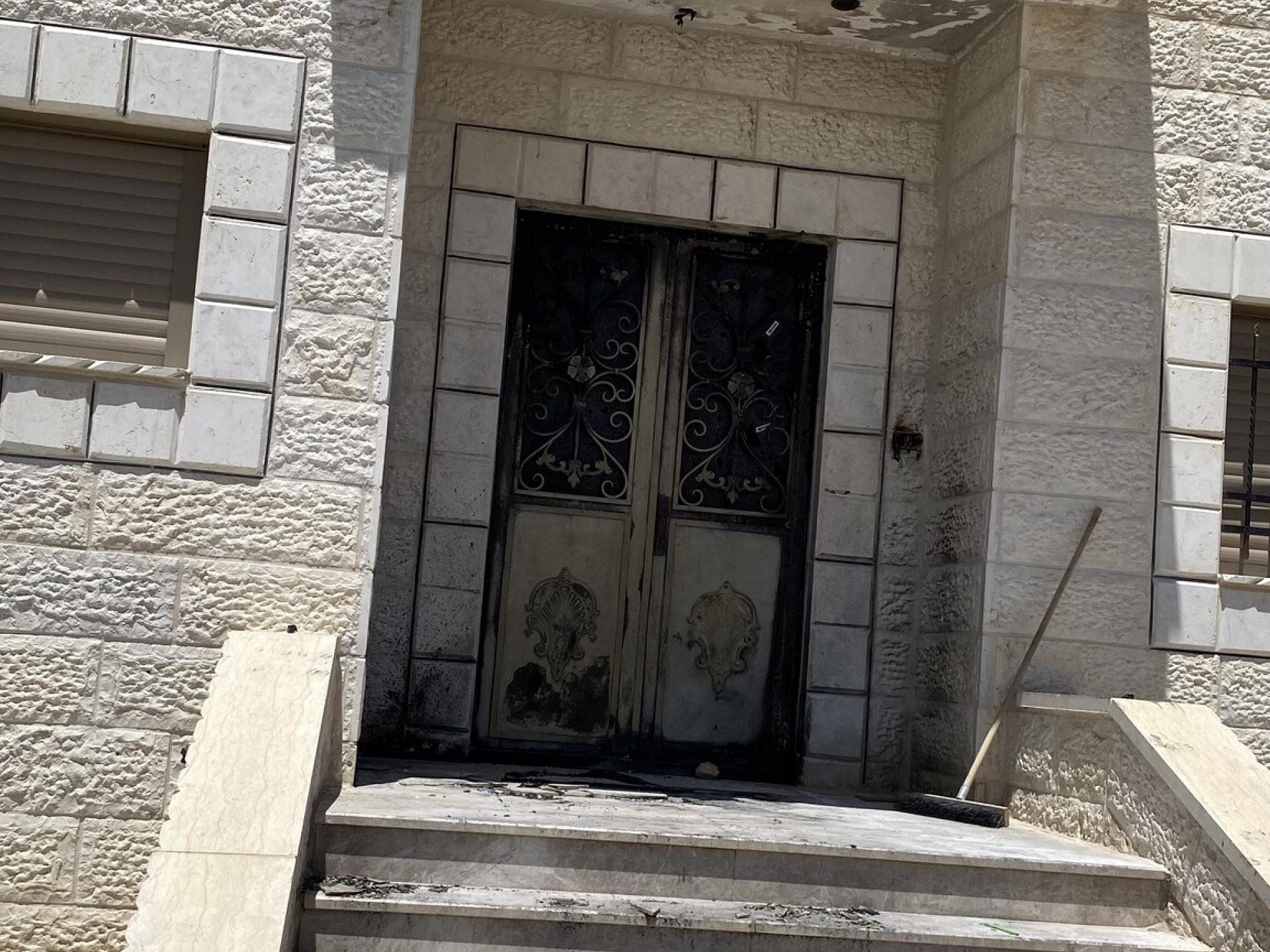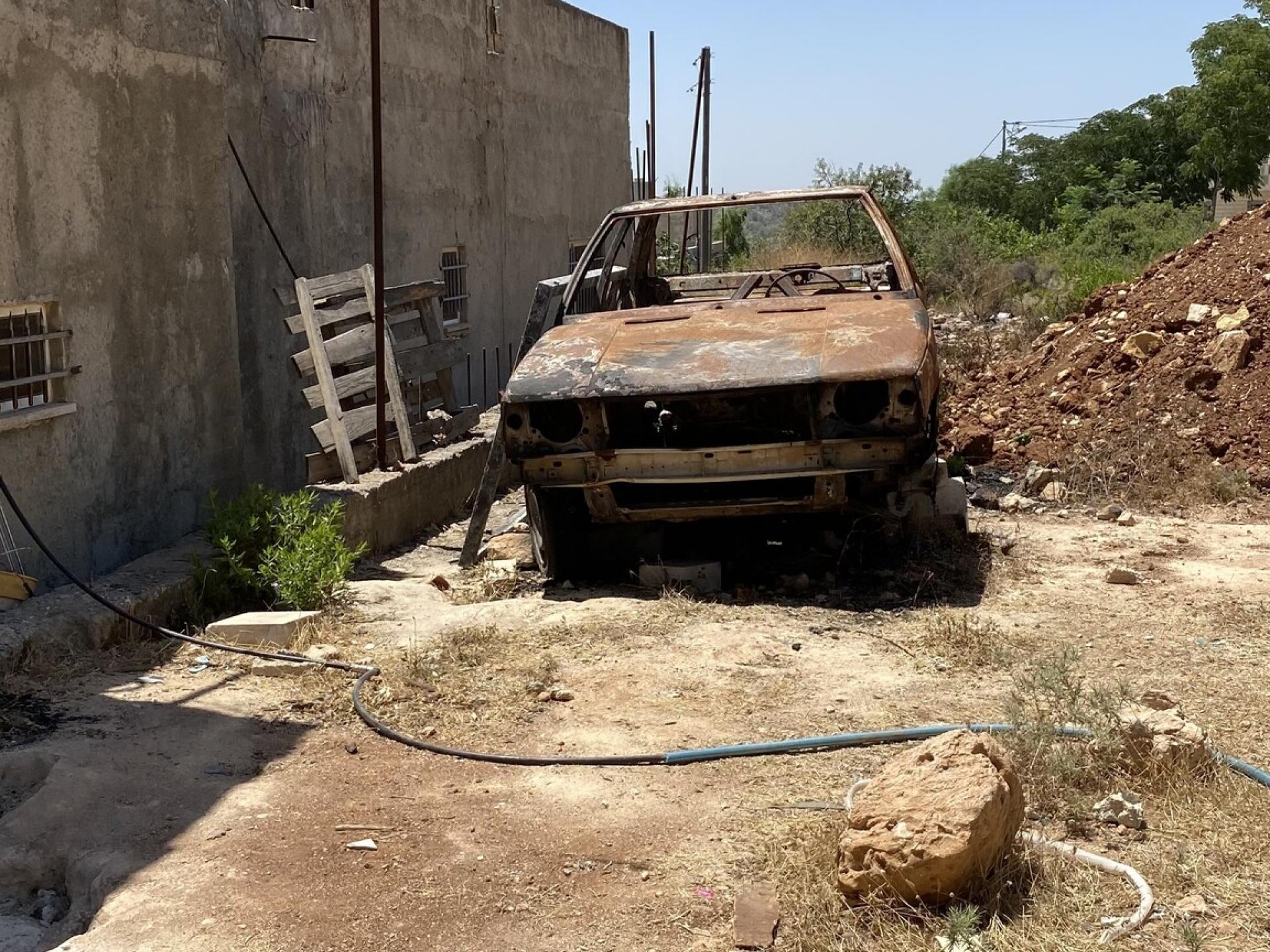Umm Safa, settlers attacked the village in June and July and two of its villagers were murdered

The whole West Bank is burning, blood flowing. The colonists are the provokers, that is obvious. They come from their illegal outposts to the Palestinian villages, throw stones, burn and shoot, too. When the Palestinians respond by throwing stones, the colonists use their firearms, claiming self-defense. They shoot indiscriminately and the Palestinians run for their lives. Sometimes some are killed, wounded.
All this is done with the backing of the Israeli army that protects the assailants.
The injustice is ongoing throughout the West Bank, has been for years – violence as well as dispossession. But for the past year, annexation is accelerated. The occupation’s purpose is to annex as much land as possible and reduce the population by making it flee.
The number of Palestinians killed in the West Bank has hit a record – some of them unarmed, about one-quarter are children. The army invades homes at night, violently arresting young people, sowing fear and kindling more hatred.
The declared policy is to enlarge the colonies and all means are justified by the government ministers and the army.
Our journey today takes us on a visit to Umm Safa, a village in the Ramallah district that was attacked by colonist in June and July, and two of its villagers were murdered.
We leave road 5 through Burkin. The road passes among high hills and green wadis, there are many springs in this area. Near the colony of Neve Tzuf there is a spring which the colonists call Ma’ayan Me’ir but its name on the maps is Ma’ayan Ha-Keshet. The place is shady, partly pave, there are benches and picnic tables. A great place, only Palestinians are not allowed. An army jeep stands on the dirt track, overlooking the site. The soldier came towards us but said not a word. And if we were Palestinians?
On the other side of the road, in the past Palestinians from villages near Neve Tzuf grew fields of vegetables – parsley, onions, peppers, tomatoes, everything needed. But the Civil Administration or some other “good hearts” disconnected the pipes that brought water to the fields. Now it is all dried up.
or some other “good hearts” disconnected the pipes that brought water to the fields. Now it is all dried up.
The scenery on the way is beautiful. On our right lies the village of Nabi Salah, on the hill. Every day protest demonstrations take place there, wishing access to the holy site, the Maqam.
We pass by the colony of Halamish and reach Umm Safa. This is a small village, with about 700-800 inhabitants. At the council house we meet Abu Baha, the deputy village chief. A good-looking man, articulate, speaks some Hebrew, some English. He says that most villagers work in Israel, some in the Palestinian Authority. They receive water from Mekorot (Israeli national water company) – 4000 cub.m. Abu Baha claims this suffices, unless the colonists close off the main.
The smaller part of the village, its center, is located in Area A, around it is some Area B, but the rest of it is Area C.
He says that they never had any problems with the colonists of Ateret (although the colony was built upon land sequestered from the village. 225 dunams. Another 400 dunams were sequestered to pave the bypass road 465). But several months ago a colonist arrived, a shepherd, and began to graze his flock in the Wadi between Umm Safa and Ateret. The land belongs to Umm Safa, of course. When villagers approached him, he threatened them with his gun. The thuggish “hill youths” protect him.
The village youngsters began to throw stones at him, make him go away. Then, in June, about 40 armed colonists entered Umm Safa. Abu Baha says they are not residents of Ateret, but that’s where they came from. Others arrived from Halamish as well as “hills youth”. They threw grenades, burnt houses and cars, threatened the youngsters, and in the clashes that ensued – shot a 17-years-old boy to death. Abu Baha says he heard one of the officers say to the shooter, “Why didn’t you shoot him in the legs? Why in the head…”
The soldiers warned the shepherd not to return to the site but he wouldn’t take any orders from anyone. He came back the next day, and is there ever since. The army watches out so that the villagers do not approach him.
In July colonists came to the village again. Once more a clash ensued, and again a young man of the village, 27-years-old, was shot to death, another seriously wounded.
This time Israeli activists came to help, but the colonists threatened them not to get close.
They burnt the truck belonging to the elder Abu Salah which was parked in the yard, burnt trees around his home, and when his wife tried to protect her property, they beat her up and threw a stun grenade at her. We also went to see Abu Salah’s son’s home. The thugs came there when the husband was at work and only his young wife and her two small children were home. She came out of the back door and videoed the thugs as they did their stuff. But there is no one to sue…
The house is fenced in, but the gate was not locked. Now fences are springing up around all the houses, and cellular cameras are being placed all around.
Near the third house stands the burnt remains of what was once the family’s private car. The house itself is completely burnt inside, and renovation works have begun. Otherwise, where would they live? Since then, the villagers live in fear, and they are helpless. The Palestinian Police does not enter the village and the army protects the colonists. What can be expected?




